Images
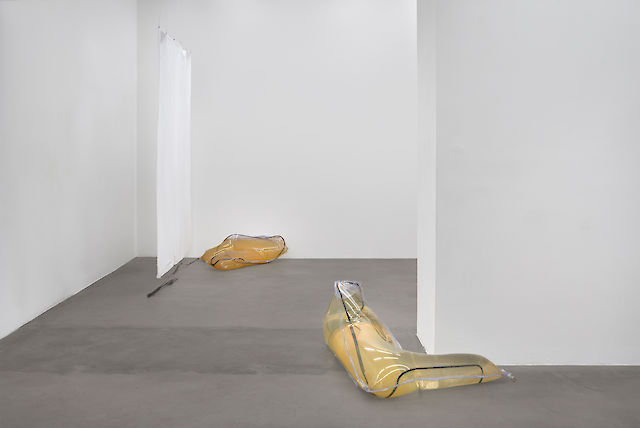
Olga Balema, installation view Cannibals, 2015
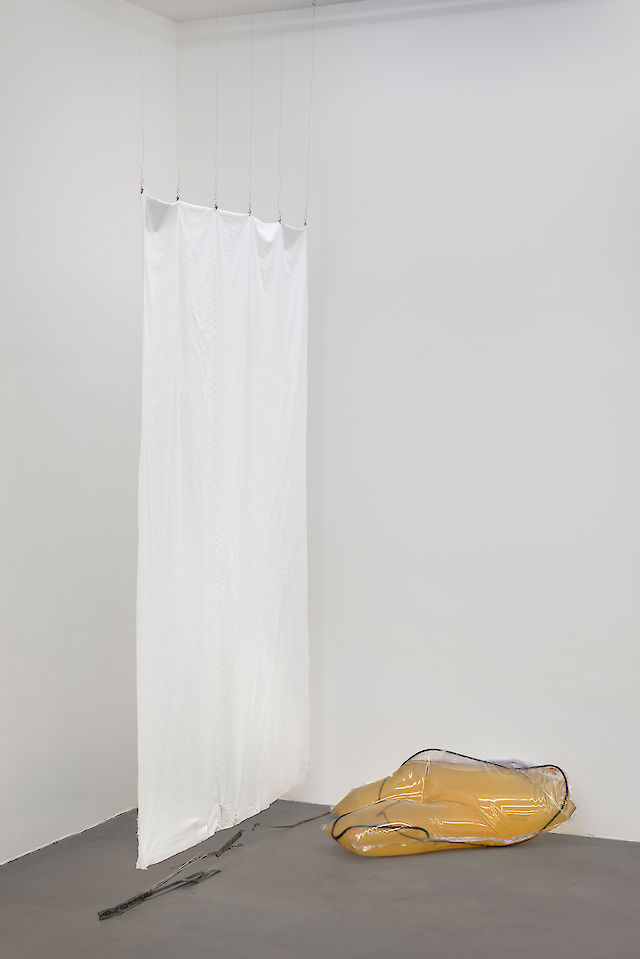
Olga Balema, Threat to Civilization 6, 2015, Soft pvc, steel, water 40 × 73 × 107cm
Border/Boundary 3, 2015, Fabric, steel 261 × 185cm
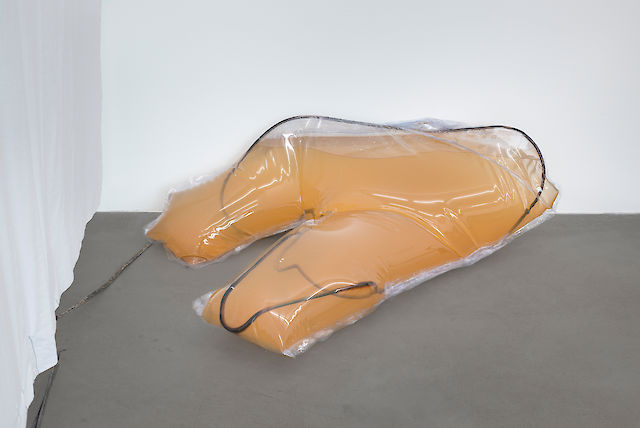
Olga Balema, Threat to Civilization 6, 2015, Soft pvc, steel, water 40 × 73 × 107cm
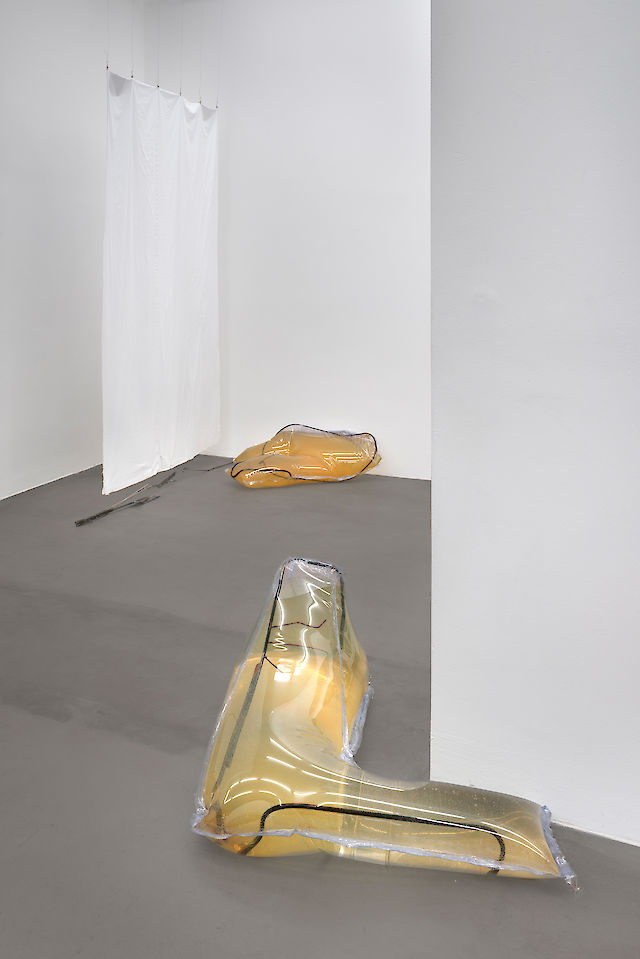
Olga Balema, installation view Cannibals, 2015
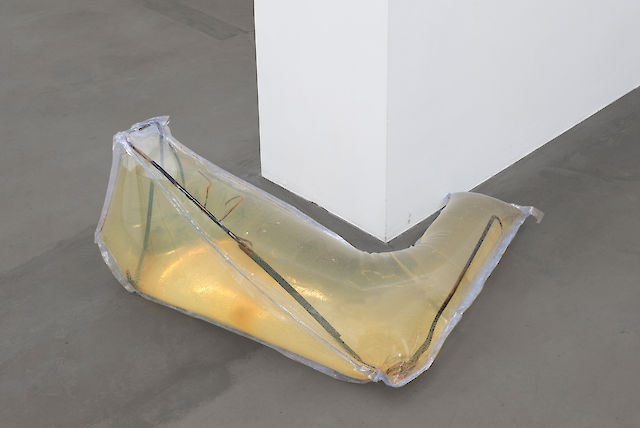
Olga Balema, Threat to Civilization 2, 2015, Soft pvc, steel, water 47 × 99 × 94cm
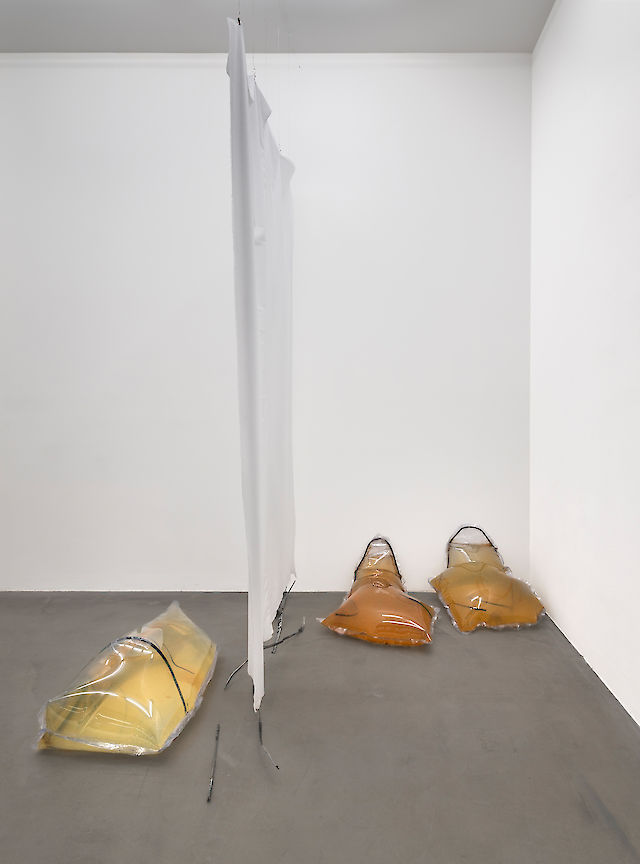
Olga Balema, installation view Cannibals, 2015

Olga Balema, installation view Cannibals, 2015
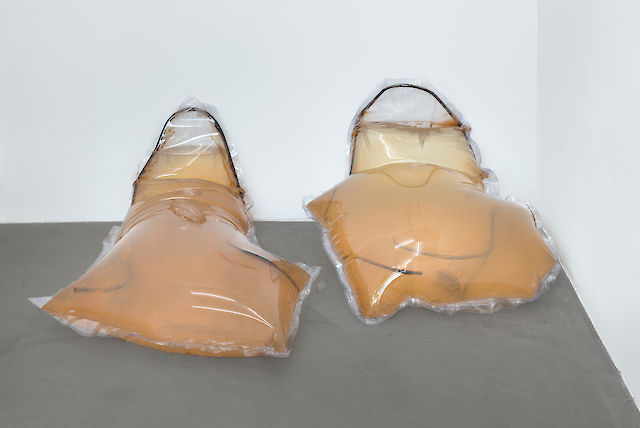
Olga Balema, Threat to Civilization 4, 2015, Soft pvc, steel, water 41 × 82 × 69,5cm
Threat to Civilization 5, 2015, Soft pvc, steel, water 50 × 56 × 50cm
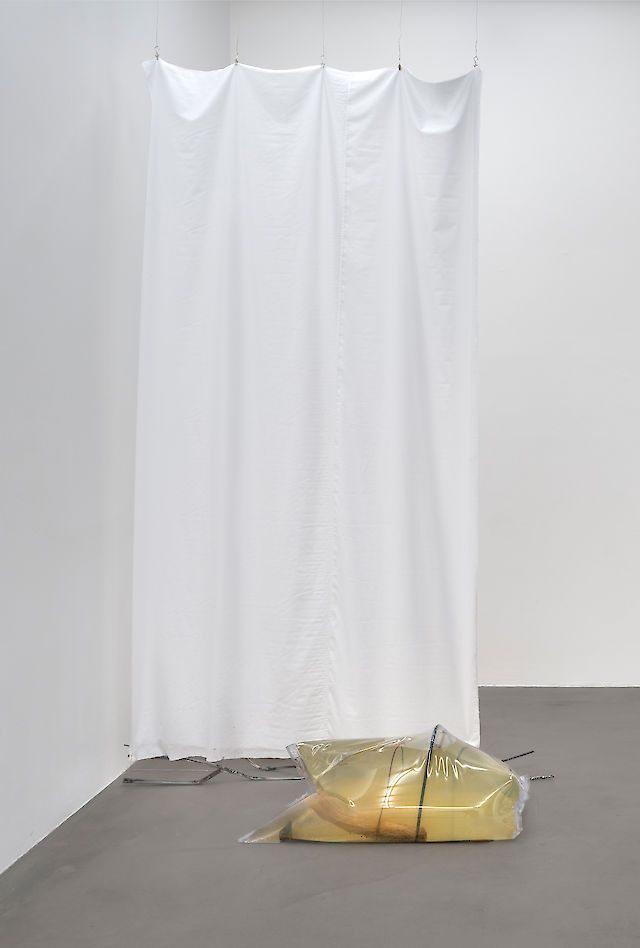
Olga Balema, Threat to Civilization 3, 2015, Soft pvc, steel, water 34 × 93,5 × 52cm
Border/Boundary 2, 2015, Fabric, steel, 261 × 152cm
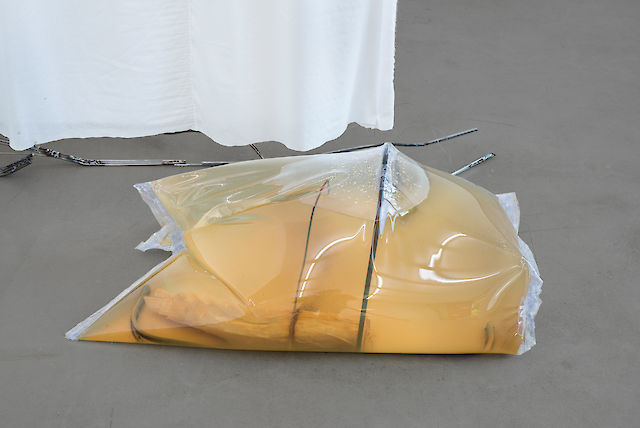
Olga Balema, Threat to Civilization 3, 2015, Soft pvc, steel, water 34 × 93,5 × 52cm
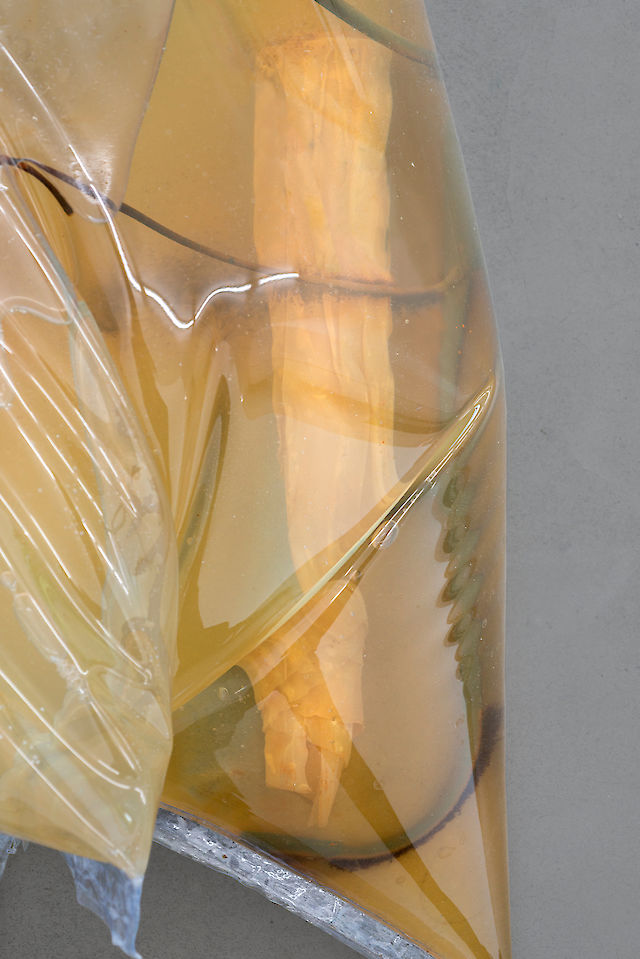
Olga Balema, Threat to Civilization 3, 2015 (detail), Soft pvc, steel, water 34 × 93,5 × 52cm

Olga Balema, Threat to Civilization 1, 2015, Soft pvc, steel, water 30 × 82 × 180cm
Border/Boundary 1, 2015, Fabric, steel, 261 × 180cm
Press Release
“Bodily needs also indicate that the appearance of autonomy is an illusion, for the body must incorporate elements from outside itself in order to survive. The need for food exposes the vulnerability of individual identity, enacted at a wider social level in the need for exchanges, communion, and commerce with others, through which the individual is absorbed into a larger corporate body” (Maggie Kilgour, From Communion to Cannibalism).
The sculptures here have ingested other former sculptures, a literal enactment of cannibalism. The round bellies of some are greedy and full, pregnant from autoerotic absorption. The latex skin of others is concave around the scaffolding of sharp and unnatural growths.
Ingestion threatens the crucial fiction that subjects are autonomously contained selves, distinct from their environments, agents of their own interiority. As food moves through bodies, exterior becomes interior and vice versa; object constitutes subject and vice versa.
The body’s periphery is permeable. One eats in conversation with others. One becomes subsumed by one’s context. One re-enters the garden by becoming a vegetable. Food scarcity during times of overpopulation is really the solution to its own problem. Those who obey the tenets of the cannibalism taboo are inevitably the first to go. The best off are those who, from the beginning, understand their bodies as circulating in an economy of fungible volumes. In her autobiography Smile Please, Jean Rhys describes one Christmas Day: “speaking to a Frenchman in Paris, I said, ‘I can abstract myself from my body.’ He looked so schocked that I asked if I was speaking bad French. He said, ‘oh no, mais… c’est horrible.’ And yet for so long that was what I did.”
May the odds be ever in your flavor.
Tess Edmonson